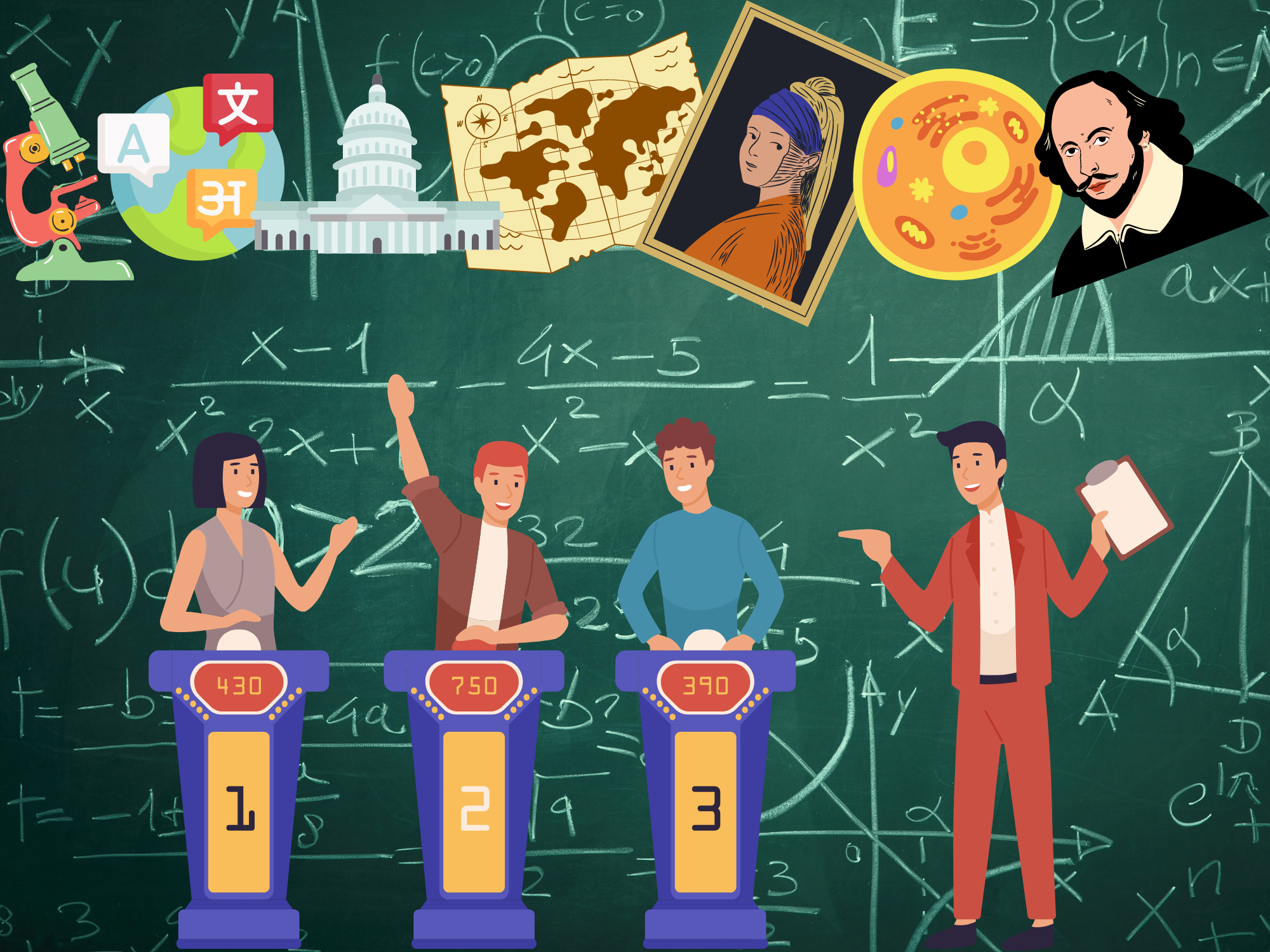Spontaneous Game Shows: The Case for General Education
Here is a weird thing about me: TV shows that surprise (read: accost) their participants like “Cash Cab,” and viral YouTube videos where interviewers ask random passers-by trivia questions and then laugh at their panicky, incorrect answers have made me paranoid that this will happen to me at some point. And this, if for no other reason, is why I’m grateful for my general education courses. There are, obviously, other reasons that gen eds are important, but the fear of being publicly shamed for not immediately locating Zambia on a map (southern Africa, east of Angola), is high on the list.
You may not share my anxiety about a trivia ambush, so I’ll share 3 more reasons general education is so important:
The courses you don’t want to take are probably the ones you need most.
If you’ve always excelled in math, are majoring in math, and plan to be a professional mathematician, you might be annoyed to learn that you are required to take a writing course and a natural sciences course. You are also very likely one of the people who really needs those courses. Your stellar math skills do the world zero good if you can’t communicate your findings effectively, or if you get on YouTube and immediately discredit yourself by claiming the earth is flat. It’s fun to study what we like and are naturally good at, but post-commencement life is big, weird, and unpredictable. Even math majors must write cover letters when applying for jobs; even history majors will have to pay taxes. I can’t be the only person who developed a strong opinion about effective communication skills within the scientific/medical community in the last three years (COVID, anyone?).
You’re more than a future worker.
My dear mathematically minded friend, you deserve to read a poem (or play a musical instrument or paint a landscape). You are, after all, a whole human being, and your life’s experience will be more than what you contribute to the world while on the clock. After putting in a 60-hour week of mathing (I have no idea what professional mathematicians do), how will you find personal joy and meaning in life? Do you even know what your options are? I sure didn’t, until I tried a modern dance class and found out it certainly wasn’t that. Maybe drawing will help quiet your mind, maybe reading books about the ancient Sumerians helps you feel connected to your mathematical predecessors, or maybe those will both be terrible, but you’ll have learned something about yourself. At the very least, you’ll have an interesting story to share. Students are more than just future employees, and a formal education should be more than just a license to work.
Everybody wins.
Do you understand how your nation’s government works? Do you know the laws of the state/territory/province you live in? Do you understand your country’s cultural, economic, and historical place within a global context? Because those things are important, and not just for you, personally. When a society is built on a population with a well-rounded education, everybody wins. We all win when choices are being made by people who understand how to interpret data; express complex ideas effectively; think critically and contextually; and create logical, actionable plans. You owe it to your fellow citizens to be one of those people.
Am I arguing that every person needs to earn a traditional associate or bachelor’s degree? Of course not. Some people will receive a diverse and “general” education through their experiences in the world. Some people will learn geography and foreign languages through travel; some people will learn philosophy through informal reading and lively coffee house debates. There’s always more than one path to knowledge. But! General education requirements are still a great way for students to explore new fields and consider new ideas.
If you asked me at age 19 what skills I would need for my career, I’m not sure what I would have said, but I am sure that it wouldn’t have been correct. Students are frequently in a hurry to get through school and get on to the next part of their lives. It’s completely understandable that they’re not simmering with excitement to take a mandatory literature course. But, as I tell myself whenever I have to go to the dentist, my reluctance to do a thing doesn’t mean the thing has no value.
Though the threat of being forcibly conscripted into a high-stakes, spontaneous quiz show is relatively low (though ever-present), it does encapsulate an idea that can be difficult to convey, especially to younger students: you have no idea where life will take you. And even if you’re pretty sure about where your future is going, you don’t know who you’ll meet on your journey. Wouldn’t it be nice to talk to them about your rich and varied interests?
Wouldn’t it be nice to talk to them about something other than math?

